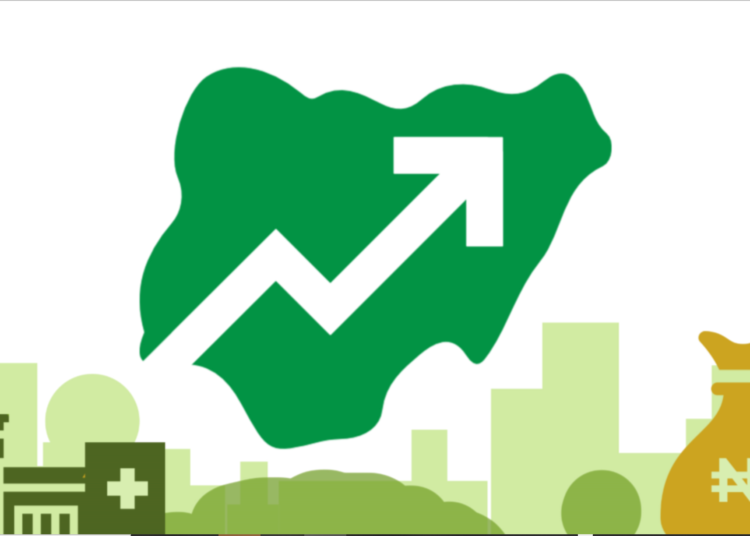Stakeholders and analysts in the Nigerian economy were last week taken aback when the National Bureau of Statistics (NBS) released early data on the rebasing of critical economic indicators which it embarked on in partnership with the Nigerian Economic Summit Group (NESG).
The NBS announced that it had selected 2019 as the new base year for Gross Domestic Product (GDP) computation replacing 2010 which had been in use since 2014, while the base year for price computation was put at 2024 from 2009 with 2023 adopted for weighting.
While the rebasing has been agreed to be overdue, analysts are worried that the base year selected for measuring price increase may not only create distortions, but may further erode the public confidence in official data being rolled out in the country.
Rebasing is the process of adopting a new and more recent reference year to which future values of an economic variable is measured against, affording the opportunity to update weight and prices based on structural changes in the consumer and/or production patterns over time. The United Nations Statistical Commission recommends a review or rebasing of GDP every five years. This is because the weighting of component items in a base year may no longer be reflective of reality, resulting in exaggerated estimations.
However, a period of normal economic activities is necessary to achieve a good base. For the latest rebasing, the NBS had highlighted expansion in the number of economic activities tracked for income and price trend reporting as major changes to be seen.
For GDP computation, the new series had been expanded to include digital economy, activities of Pension Fund Administrators, National Health Insurance Scheme, Nigerian Social Insurance Trust, modular refineries, domestic households as employers of labour, quarrying and other mining activities as well as illegal and hidden activities.
For measuring Consumer Price Index, the number of items in the basket has been increased to 960 from 740 with new indexes to track farm prices as well as energy and services economy activities. As a result of these revisions, the CPI weights for Food & Non-Alcoholic Beverages, Alcoholic Beverages, Tobacco & Narcotics, Clothing & Footwear, Housing Utilities and Furnishings, Household Equipment and Maintenance & Recreation, Sport & Culture, decreased to 40.1, 0.4, 5.0, 8.4, 3.0 and 0.3 per cents, respectively, down from the previous weights of 51.8, 1.1, 7.7, 16.7, 5.0 and 0.7 per cents.
Commending the move to rebase, analysts at Afrinvest West Africa noted that, while the increase in the number of items captured in the basket will provide legroom to capture activities relevant to consumers, the decline in Food weighting appears less intuitive given the expectations of higher food budget as per capita income shrinks.
To them, “the implication of lower food weighting might be positive for inflation reading given that food sectors has historically been a key pressure point for inflation, based on the November CPI report, food inflation rate nudged higher by 77 bps to 39.9 per cent year on year, the highest in five months.”
Afrinvest analysts also pointed out that the selection of 2024 and 2023 for price and weighting references respectively could have some limitations given the peculiarities of the period from an economic and political perspective. Picking 2024 as the base year for CPI will see the statistics body skip major events that have triggered inflation in the country such as cash crunch, subsidies removal, significant exchange rate deterioration, and other shocks due to early effects of reform policies among others.
On his part, the co-founder at Veriv Africa, Basil Abia, while citing the re-computation of the unemployment data which saw unemployment go from over 33 per cent to four per cent, said choosing 2024 as the base year for inflation will further create confusion and lack of trust.
While pointing out that there ought to have been up to three rebasing done by now, Abia said, there is a tendency that the base year picked by the NBS will see inflation go to single digit. “It could go back to single digit because of the fact that 2024 was a specifically unique year from a price shock perspective, we had our record high headline inflation rate in 2024.
“We had the highest inflation rate in June 2024, which was recorded at 40 per cent and you know, which took headline inflation up to 37 per cent. Headline inflation now is currently at 34.60 per cent, food inflation is currently at 39 per cent. So, when your ground zero starts at that peak point, there is a tendency for the ground zero inflation calculation to go back to single digits, sometimes even lower than five per cent. How does that reflect on the real story of price pressure? he queried.
On the implication of this, he said, “from a monetary policy rate fixing perspective, the CBN Monetary Policy Committee is going to be a bit confused. How are they going to know that we have to continue ringing on inflation? How are they going to know that they have to maintain the hikes, or keep the MPR at the level that it currently is, which is 27.5 per cent. Then investors start to look at the inflation of that single digit of maybe four per cent at the ground zero level, that is the distortion that it causes.”
On his part, Professor of Capital Markets at Nasarawa State University, Prof Uche Uwaleke noted that, at a previous stakeholder meeting, the NBS had said it would use the year 2023 as the base for inflation as against the 2024 which it announced last week.
Similar to what Abia noted, Prof Uwaleke said, the new computation for inflation will create distortions. With the government already targeting 15 per cent inflation rate, Uwaleke said, if after the rebasing, “inflation rate is now five or six per cent, are we now saying, the government should now go and sleep and say they have already achieved their target for 2025?
“Already, independent researchers tend to have inflation rates that are higher than what the official one is saying. So it is good that at the end of the day, whatever is published as the new inflation rate reflects current reality.”




